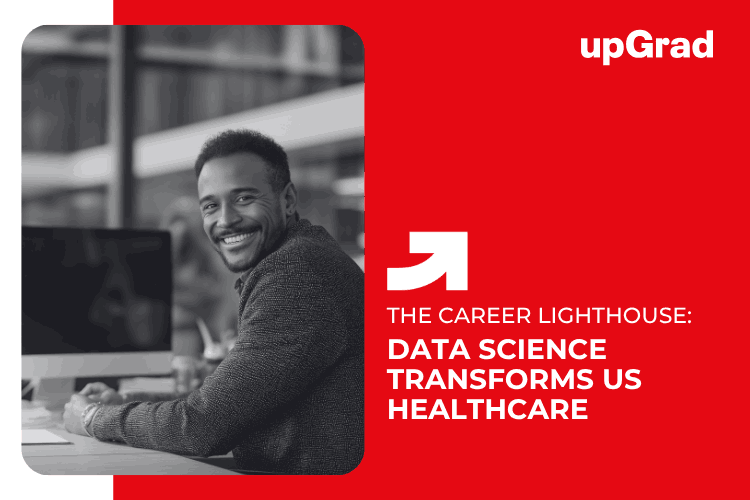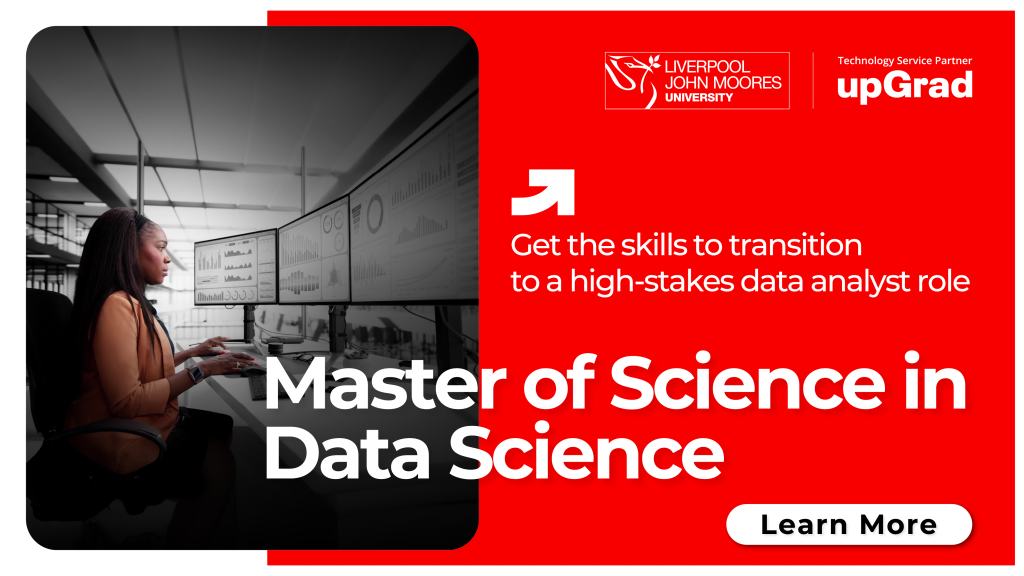Imagine being able to predict patient outcomes before symptoms even appear, or allocating hospital resources with pinpoint precision. Thanks to data science, this is no longer the future—it’s happening now. By harnessing massive volumes of health data, professionals can uncover life-saving insights, streamline operations, and deliver smarter, more affordable care. In today’s rapidly evolving medical landscape, data science isn’t just a tool—it’s a game-changer. The healthcare data scientist is a highly sought-after profession, thanks in part to the good salaries that range between $93,000 and $100,000 a year on average in the US.
The blog will discuss the transformative impact of data science in healthcare and highlight emerging trends in healthcare data science in the US.
Take your skills to the next level — Explore Data Science Online Course
The Transformative Impact of Data Science in Healthcare in the US
The healthcare system has become significantly faster in this day and age, and as such, data has ceased to be a mere operational necessity. It has become the key to making evidence-based and more intelligent decisions. As an invaluable resource, it drives transformative technologies such as data analytics and artificial intelligence (AI), which are crucial for delivering precise, high-performing, and personalized services that companies need to thrive in the highly competitive healthcare landscape.
Workflow Efficiency
A significant benefit of applying data science in healthcare is enhancing workflow efficiency by optimizing various processes. For example, predictive analytics can forecast patient admissions, enabling hospitals to utilize their resources more efficiently. These factors ensure that facilities and staff are available when hospitals need them the most, thus improving patient care and reducing bottlenecks.
Drug Development
Drug development acceleration is yet another significant contribution of data science to the medical field. In this case, data science professionals analyze vast datasets to identify potential drug candidates and forecast the efficacy of medicines. For example, researchers can utilize machine learning (ML) algorithms to analyze genomic data and identify potential drug targets. These benefits reduce the time it takes to discover new drugs and help service providers develop more effective treatments as well.
Cost Reduction
Candidates with a master’s degree in healthcare analytics can play a significant role in reducing costs in the healthcare sector. Healthcare providers can analyze patient data to identify high-risk individuals, thereby intervening early and potentially preventing costly hospitalizations. Additionally, data-driven insights can also optimize supply chain management, reducing expenses and waste.
Risk Mitigation
Using data science for healthcare service providers can lower the risks of treatment failures. ML models are capable of analyzing patient data and predicting treatment outcomes, which enables healthcare providers to be proactive in adjusting treatment plans. This proactivity, in turn, lowers the chances of adverse events and also makes patients safer.
Precise and Timely Treatment
Data science also empowers healthcare professionals to provide precise and timely treatments. For instance, real-time data analysis and wearable devices can help doctors monitor patients remotely and intervene promptly if they notice any health parameter deviating from the normal range.
Along with these benefits, using data science in healthcare also helps enhance the accuracy of diagnoses, prevent emergencies, and reduce waiting times for patients. Data-driven algorithms make diagnoses more accurate. Data science also helps avoid unwanted emergencies because doctors are not available when people need them.
Also Read: How to Learn SQL for Data Science: A Beginner’s Guide for US Learners
Emerging Trends in Healthcare Data Science
These days, healthcare data science companies are increasingly using ML and AI for diagnostics, real-time health monitoring using wearable devices, and personalized medicines. Apart from these, the use of Virtual and Augmented Reality, Robotics Process Automation (RPA), and Natural Language Processing (NLP) is also a significant trend in this regard.
| Broader Area | Specific Trends |
| ML and AI |
|
| Remote Patient Monitoring (RPM) and Telehealth |
|
| Data Interoperability |
|
| Personalized Medicine |
|
| Patient Engagement |
|
| Cloud Computing |
|
Also Read: Must-Know Big Data Tools for Data Engineers in the U.S.
How upGrad Empowers Healthcare Professionals
The online data science and analytics courses offered by upGrad provide aspiring healthcare data science professionals with industry-relevant programs that also cover topics such as the role of data analytics in healthcare. Apart from that, they offer them robust career support and hands-on learning. They also offer specialized courses, such as data science boot camps, which combine case studies and hands-on projects with live and instructor-led training to provide students with an ultimate educational experience in this regard.
- Post Graduate Diploma in Data Science (E-Learning), upGrad Institute
- Executive Diploma in Data Science and AI, Indian Institute of Information Technology (IIIT) Bangalore
- Post Graduate Certificate in Data Science and AI, IIIT Bangalore
🎓 Explore Our Top-Rated Courses in United States
Take the next step in your career with industry-relevant online courses designed for working professionals in the United States.
FAQs on How Data Science Is Transforming Healthcare
Q: How long does it take to become proficient in healthcare analytics?
Ans: It typically takes anywhere from six months to a few years for individuals to become proficient in healthcare data analytics.
Q: What types of real‑world healthcare projects can I build?
Ans: The following are some great options for real-world healthcare projects in data science:
- Disease Prediction Models
- Medical Image Classification
- Drug Interaction or Recommendation Checker
Q: Are healthcare data science roles well‑compensated?
Ans: Yes, experts typically consider healthcare data science roles to offer competitive compensation to professionals, as there is a high demand for data science professionals in healthcare.
Q: What certifications or courses are valued by healthcare employers?
Ans: Healthcare employers typically value data science courses and certifications that show the candidate is an expert in areas such as statistical analysis, programming languages, ML, and understanding healthcare data.
Q: How does telehealth analytics differ from traditional analytics?
Ans: Telehealth analytics primarily focus on remote healthcare delivery, while traditional analytics concentrate on broader business operations. This information shows that they differ in their focus and scope.









